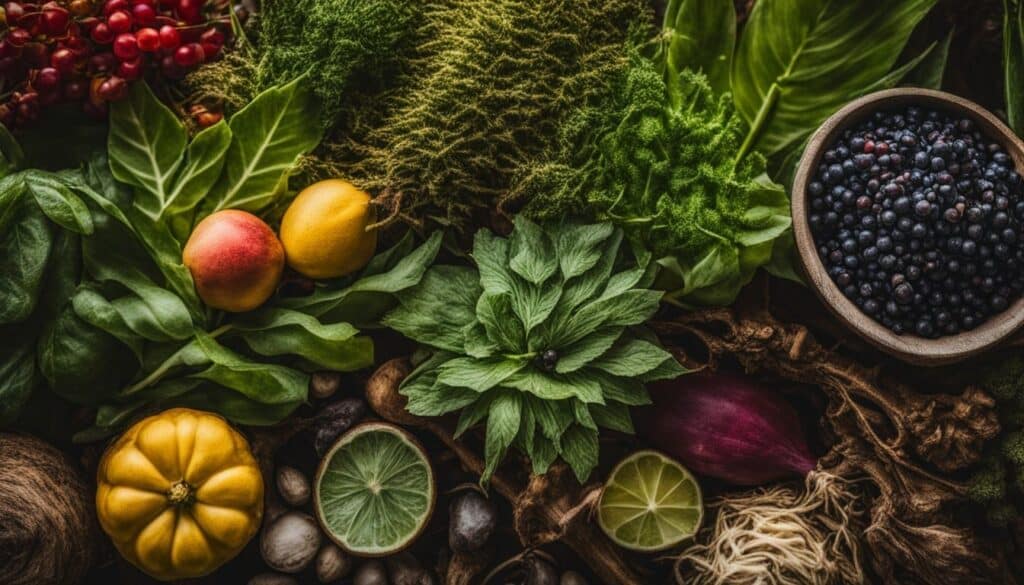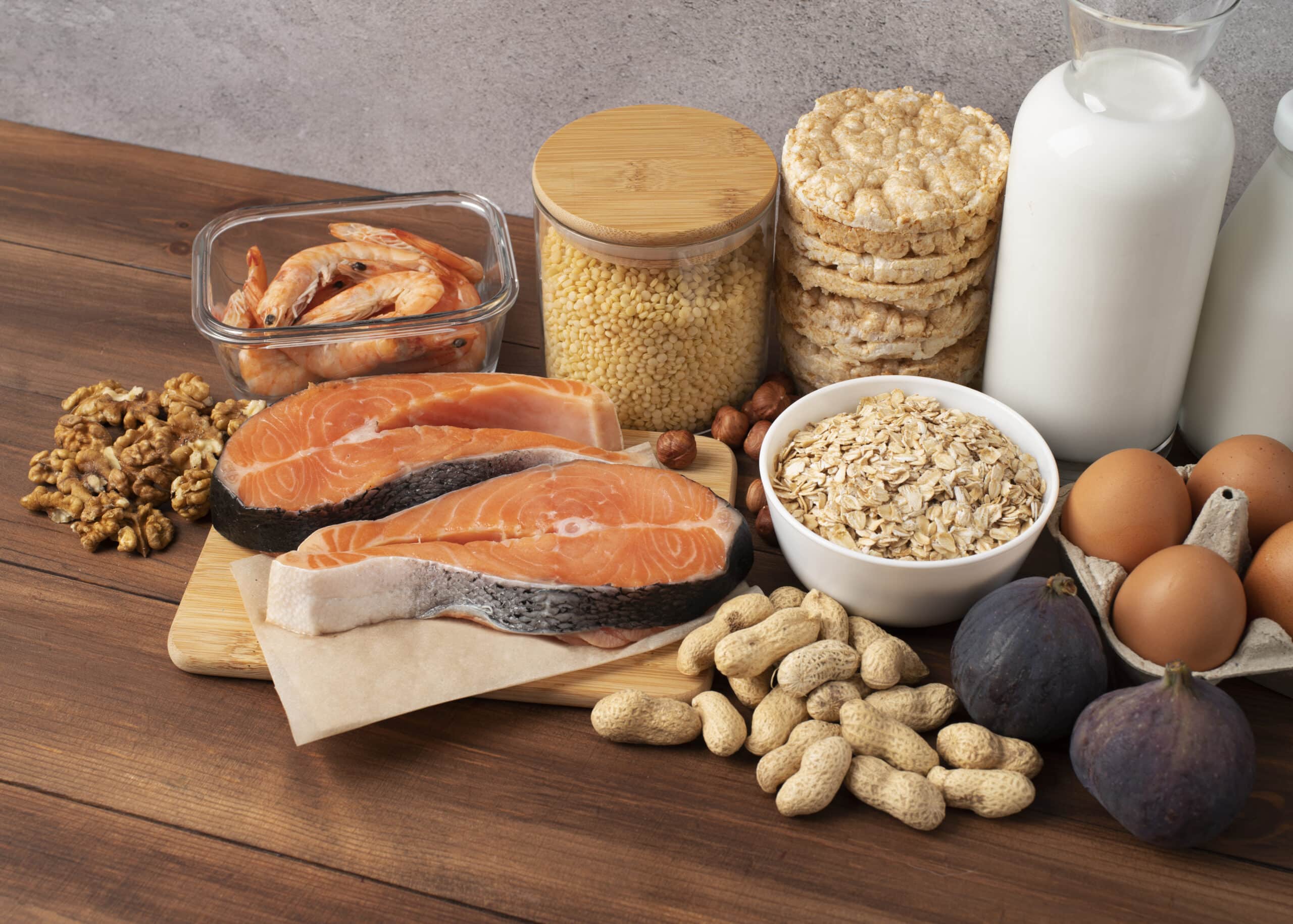Best Plant-Based Sources Of Selenium

Ensuring proper nutrition can sometimes feel like a puzzle, especially when tracking essential minerals like selenium. Did you know that just one ounce of Brazil nuts packs an impressive 544 micrograms of this vital nutrient? This post will guide you through the best plant-based sources of selenium, helping you easily meet your daily needs.
Stay tuned for easy-to-follow tips and tasty vegan recipes rich in selenium!
Key Takeaways
- Brazil nuts are the richest plant-based source of selenium; just one nut can provide a full day’s requirement.
- A variety of foods like sunflower seeds, sesame seeds, tofu, whole grains, mushrooms, and asparagus also offer good amounts of selenium.
- Eating too much selenium can be harmful; adults should not exceed 400 micrograms daily.
- Those on vegan diets can meet their selenium needs through foods or supplements if necessary.
- Selenium protects heart and brain health and supports the immune system.
The Importance of Selenium for Our Health
Selenium is an essential mineral that plays a crucial role in supporting heart and brain health. It also helps regulate thyroid function and has antioxidant properties that help protect cells from damage.
The recommended daily intake of selenium is important to maintain overall well-being.
Benefits for heart and brain health
Eating foods with selenium helps your heart in many ways. It works against inflammation and keeps blood flowing well. This lowers the chance of heart problems. Your brain also gets stronger from this nutrient because it protects cells, which can help slow down diseases like Parkinson’s.
Selenium plays a big role in keeping your mind and body healthy. As an antioxidant, it fights off harm to cells that could make things worse for your heart or brain. Getting enough through diet is key for long-term health without extra pills or treatments.
Recommended daily intake
Adults need about 55 micrograms of selenium each day to stay healthy. This amount is called the Recommended Dietary Allowance, or RDA. For pregnant women, a bit more is needed – about 60 micrograms.
And for those who are breastfeeding, it’s 70 micrograms per day.
It’s important not to have too much selenium. The most an adult should have is 400 micrograms in a day. This limit helps people avoid any bad effects from having more selenium than their body can handle.
Depending on age and size, kids and teens also need less than this amount.
Top Plant-Based Sources of Selenium

Plant-based sources of selenium include Brazil nuts, sunflower seeds, sesame seeds, tofu, whole grains, mushrooms, and asparagus. These foods can help vegans and vegetarians meet their daily selenium requirements.
Brazil nuts
Brazil nuts are a powerhouse when it comes to selenium content. Just one Brazil nut packs a whopping 160% of the daily value recommended in the United States. This makes them stand out as the top food source for this essential nutrient.
Eating these nuts can do wonders for your health, boosting your immune system and reducing inflammation. They even have properties that can improve your mood.
You might find it amazing how much more selenium Brazil nuts contain than others. Their high levels make them an excellent choice for anyone following a vegetarian or vegan diet, where getting enough important nutrients can sometimes be challenging.
Including Brazil nuts in your diet is like hitting the jackpot for meeting your selenium needs without relying on animal-based foods or supplements.
Sunflower seeds
Sunflower seeds are a great plant-based source of selenium. They also provide protein, healthy fats, phytosterols, thiamine (B1), and vitamin E. These seeds can boost the immune system with their zinc and selenium content, increasing blood flow and oxygen delivery.
Incorporating sunflower seeds into your diet can support heart and brain health, making them an excellent addition to a balanced plant-based meal plan.
Remember to add sunflower seeds to salads and smoothies, or enjoy them as a snack for a tasty way to increase your selenium intake. Sunflower seeds are versatile and nutritious, whether sprinkled on top of yogurt or blended into homemade energy bars.
Sesame seeds
Sesame seeds are a prime plant-based source of selenium, an essential mineral for overall health. In addition to selenium, these small seeds also contain high magnesium levels, providing a dual health benefit.
Their versatility allows sesame seeds to be utilized as a plant-based protein source, making them an excellent addition to vegetarian or vegan diets. Whether sprinkled over salads, incorporated into stir-fries, or blended into dressings and sauces, sesame seeds offer a convenient way to boost selenium intake while enjoying their nutty flavor and crunchy texture.
Incorporating sesame seeds into daily meals can help individuals meet their recommended selenium intake without relying solely on supplements or animal-based foods. This makes them an ideal choice for those following plant-based diets who seek natural sources of this vital nutrient.
Tofu
Tofu is an excellent source of selenium, providing nearly 40% of the daily value in just one serving. This versatile plant-based protein also offers a good amount of calcium, manganese, and iron.
Moreover, incorporating tofu into a plant-based diet may help lower LDL cholesterol levels, contributing to heart health. Adding tofu to your meals can ensure you get essential minerals like selenium while enjoying its multiple health benefits.
Incorporating tofu into your diet can be easy and delicious. From stir-fries to smoothies or even baking it for extra texture in dishes, there are numerous ways to add this nutrient-packed food to your meals.
Whole grains
Whole grains are packed with essential minerals like selenium, which play a crucial role in protecting our overall health. Selenium content in whole grains varies based on the soil they are grown in.
Research suggests that consuming whole grains may help lower the risk of certain cancers due to their valuable phytochemicals and nutrients like selenium.
The selenium found in whole grains is an important nutrient that can contribute to maintaining our well-being. Incorporating whole grains into your diet can be a simple way to ensure you get beneficial minerals like selenium, supporting your body’s optimal function and health.
Mushrooms
Mushrooms are an excellent plant-based source of selenium, providing a range of health benefits. Additionally, they are the only vegan source of vitamin D and contain essential nutrients like copper and potassium.
Some types, such as Lingzhi mushrooms, have been enriched with selenium, further increasing their potential health benefits.
Button mushrooms also contribute to vitamin D intake, although the levels may vary. Including mushrooms in your diet can help ensure adequate selenium intake while offering a variety of nutrients important for overall health.
Asparagus
Asparagus stands out as one of the best plant-based sources of selenium. When consumed, cooked asparagus provides an excellent amount of this essential mineral, contributing to meeting daily selenium requirements.
With its inclusion in a plant-based diet, asparagus offers a valuable means to increase selenium intake. Research on the phytochemistry and pharmacology of asparagus highlights its significance as a top source of selenium among plant-based foods.
Incorporating asparagus into meals can effectively boost selenium levels naturally without relying solely on supplements. Adding this nutrient-rich vegetable to your diet can help ensure you get enough selenium while enjoying its numerous health benefits.
Signs of Selenium Deficiency and Dangers of Excess
Selenium deficiency symptoms include fatigue, depressive mood, increased infection susceptibility, and thyroid problems. People in low-selenium regions who eat a primarily plant-based diet are at risk of selenium deficiency.
Chronically high intakes of selenium can lead to toxicity. Selenium deficiency can become a bigger health issue for those with HIV, cancer, thyroid problems, and those undergoing dialysis treatments.
Selenium deficiency is relatively rare, but it can get serious if it goes unchecked, and poor soil conditions can cause it.
1. Fatigue.
– A common symptom of selenium deficiency.
2. Depressive Moods.
– Low levels of selenium may contribute to mood disorders.
3. Increased Susceptibility to Infections.
– Selenium plays a crucial role in the immune system’s function.
4. Thyroid Problems.
– The thyroid gland requires adequate levels of selenium for proper functioning.
5. Risk for Toxicity.
– Excessive intake of selenium over time may lead to toxicity.
How to Incorporate Selenium into a Vegan Diet
To ensure that a vegan diet includes enough selenium, consuming selenium-rich foods such as Brazil nuts, sunflower seeds, tofu, and whole grains is important. Additionally, vegan selenium supplements can be used to meet the daily requirements of this essential nutrient.
Tips for consuming enough selenium
To ensure you’re getting enough selenium, try to include a variety of plant-based foods in your diet. Include Brazil nuts, sunflower seeds, tofu, whole grains, mushrooms, and asparagus in your meals to boost your selenium intake.
Since the selenium content of plants depends on the soil they were grown in, choose organic produce if possible. You can also consider using Brazil nuts as a natural supplement; just two or three nuts daily can provide all the selenium you need.
Remember that balance is key – while it’s important to ensure you’re getting enough selenium for good health, excessive intake can have negative effects. Be mindful of how much you consume, and consult with a healthcare professional if needed.
Vegan selenium supplements
Vegans concerned about their selenium intake can consider selenium supplements. While it’s possible for vegans to obtain enough selenium from their diet, supplements offer an additional option.
Research has shown that vegan selenium supplements are linked with improved bone mineral density, highlighting their potential benefit for overall health.
Remember, it’s important to consult a healthcare professional before starting any new supplement regimen. By incorporating these facts and considering the relevance of this information in everyday life, one can make informed decisions about their dietary choices and potential supplement needs.
Using Brazil nuts as a supplement
Brazil nuts are a powerhouse of selenium, with just one nut providing your daily requirement. This makes them an excellent natural source of this essential nutrient. Incorporating just one Brazil nut into your daily diet can easily supplement your selenium intake, especially for vegans who may have limited sources in their plant-based diets.
Notably, selenium from Brazil nuts helps prevent DNA damage and offers various health benefits.
Incorporating Brazil nuts as a supplement can be a simple yet effective way to ensure you meet your body’s selenium needs without synthetic supplements.
Delicious plant-based recipes are high in selenium.
Lentil and Sunflower Seed Salad: Mix cooked lentils with sunflower seeds, freshly chopped vegetables, and a tangy dressing for a flavorful and selenium-rich salad.
Sesame Asparagus Stir-Fry: Sauté asparagus with sesame seeds, garlic, and soy sauce for a quick and nutritious side dish packed with selenium.
Tofu Mushroom Skewers: Marinate tofu cubes and mushrooms in olive oil, lemon juice, and seasonings before grilling them for a selenium-boosted appetizer or main course.
FAQs
Q: What is selenium, and why is it important?
A: Selenium is an essential mineral that plays a crucial role in the body’s antioxidant defense system, thyroid hormone metabolism, immune function, and reproductive health.
Q: How much selenium do we need daily?
A: The recommended daily intake of selenium for adults is 55 micrograms per day.
Q: What are the health benefits of selenium?
A: Selenium is known to have potential health benefits, including its role in boosting the immune system, supporting thyroid function, and reducing the risk of certain chronic diseases.
Q: What are the best plant-based sources of selenium?
A: Some of the best plant-based sources of selenium include Brazil nuts, sunflower seeds, chia seeds, flaxseeds, whole grains such as brown rice, legumes, and certain vegetables like broccoli and spinach.
Q: Can I get enough selenium on a vegan diet?
A: One can get enough selenium on a vegan diet by consuming selenium-rich plant foods such as Brazil nuts, whole grains, seeds, and legumes. However, paying attention to your selenium intake is important to meet daily requirements.
Q: What are the risks of selenium deficiency for individuals following a vegan diet?
A: Individuals following a vegan diet may be at risk of selenium deficiency if they do not consume various selenium-rich plant foods. Low selenium levels can lead to health issues such as weakened immune function and thyroid imbalances.
Q: Are there any plant sources that provide high selenium content?
A: Brazil nuts are known to have exceptionally high selenium content, making them a powerful plant-based source of this essential mineral. Consuming just a few Brazil nuts can provide a significant portion of the daily selenium requirement.
Q: Can consuming too much selenium from plant foods cause toxicity?
A: While selenium toxicity is rare from dietary sources, overconsumption of selenium supplements or certain selenium-rich foods can lead to adverse health effects. It’s important to consume selenium within the recommended daily intake to avoid toxicity.
Q: Should individuals following a vegan or plant-based diet consider taking selenium supplements?
A: If individuals following a vegan or plant-based diet struggle to meet their selenium needs through food alone, they may consider taking selenium supplements after consulting with a healthcare professional to prevent deficiency.
Q: How does the selenium content of plant foods vary based on soil selenium concentrations?
A: The selenium content of plant foods is influenced by the selenium levels in the soil where the plants are grown. Therefore, the selenium concentration in plant foods may vary based on the geographical region and soil selenium levels.

